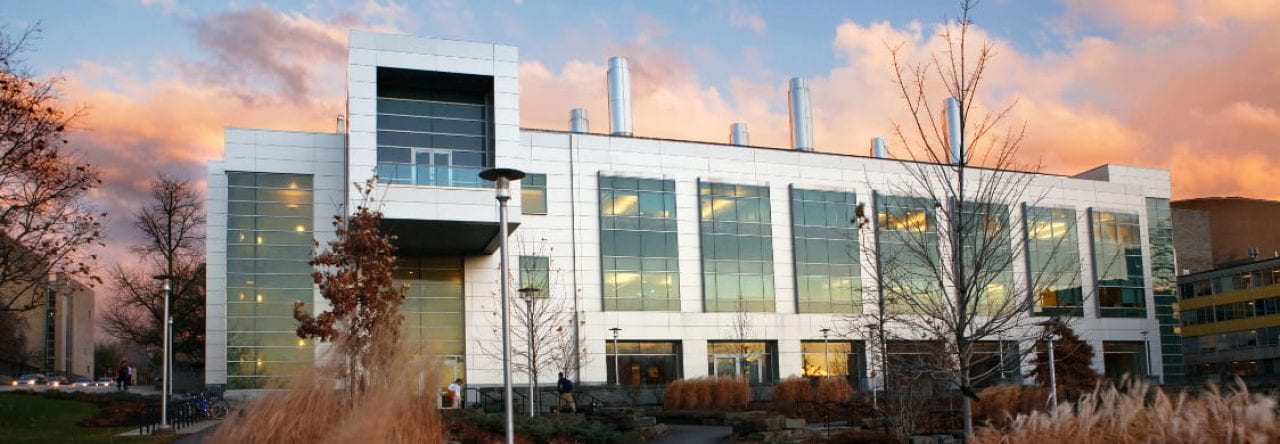K. Max Zhang
Professor
Sibley School of Mechanical and Aerospace Engineering
Biography
Dr. Zhang’s research interests focus on energy and the environments, driven by societal impact. He studies the effects of airborne particulate matters (PM) and gaseous pollutants on ambient air quality, indoor environmental quality and climate change, using numerical models and experimental techniques. One important goal is to establish a source-to-receptor relationship for harmful air pollutants and indoor contaminants. Dr. Zhang’s group has developed (which stands for Comprehensive Turbulent Aerosol dynamics and Gas chemistry), an environmental turbulent reacting flow model, to simulate the transport and transformation of multiple pollutants in complex environments. Notably, CTAG has been used as a design tool for science-driven roadside green infrastructure for disadvantaged communities and assisted the development of new building downwash-sidewash algorithms for distributed generation. In parallel, his group has also employed data-driven techniques to provide actionable strategies for effective air quality and energy management, taking advantage of increasingly ubiquitous low-cost sensors.
Another major area of Dr. Zhang’s research is sustainable energy systems. In a low-carbon economy, the production of energy will be more distributed, most energy services will be delivered to customers via the electric grid, and electric power systems, transportation systems and building systems are seamlessly integrated. His current research in this area focuses on 1) aggregating a large number of distributed and controllable energy resources such as heat pumps to provide a wide range of cost-effective systems services, and 2) renewable energy resources and solar farm design. These technologies will greatly facilitate the transition to a reliable, secure, efficient and clean power system.
Dr. Zhang’s extensive experience with Internet of Things (IoT)-based solutions in the energy and environmental systems led him create an initiative to design the first statewide public IoT network in the U.S. He believes that combining broadband with Low Power Wide Area Network (LPWAN) is the most cost-effective way to bridge the digital divide between rural and non-rural America. This initiative has already enabled a wide range of impactful research activities such as microclimate monitoring at solar farms across New York State and hyperlocal weather forecasting to enhance response winter storm response in rural communities.
Integration of community engagement into research and education is a unifying theme in Dr. Zhang’s academic and professional activities. He is working closely with the Office of Engagement Initiatives to establish community engagement and real-world learning experiences as the hallmark of the Cornell experience. Dr. Zhang is passionate about communicating science to the public. He is always looking for motivated students at all levels to join his group to pursue impact-driven research.
Research Interests
Aerosols, Air Quality and Climate Change; Energy Systems Engineering; Electrification of the heating and transportation sectors; Building systems; Internet of Things (IoT)
Teaching Interests
Dr. Zhang teaches Internet of Things (IoT), Future Energy Systems, Air Quality and Engineering Thermodynamics classes through the Sibley School.
Selected Publications
- Venktesh V. Katkar, Jeffrey A. Sward, Alex Worsley and K. Max Zhang. “Strategic land use analysis for solar energy development in New York State.” Renewable Energy, 173: 861-875, 2021
- Jeffrey A. Sward, Roberta S. Nilson, Venktesh V. Katkar, Richard C. Stedman, David L. Kay, Jennifer E. Ifft and K. Max Zhang. “ntegrating social considerations in multicriteria decision analysis for utility-scale solar photovoltaic siting”, Applied Energy, 288: 116543, 2021
- Gulai Shen, Zachary E. Lee, Ali Amadeh and K. Max Zhang. “A data-driven electric water heater scheduling and control system.” Buildings and Energy, 242: 110924, 2021
- Zachary E. Lee and K. Max Zhang. “Scalable identification and control of residential heat pumps: A minimal hardware approach.” Applied Energy 286, 116544, 2021.
- Kevin J. Kircher and K. Max Zhang. “Heat purchase agreements could lower barriers to heat pump adoption.” Applied Energy 286, 116489, 2021.
- Jiajun Gu, Bo Yang, Michael Brauer and K. Max Zhang. “Enhancing the evaluation and interpretability of data-driven air quality models.” Atmospheric Environment 246, 118125, 2021.
- Zhao Ma, Ming-Jia Li, Ya-Ling He and K. Max Zhang. “Effects of partly-filled encapsulated phase change material on the performance enhancement of solar thermochemical reactor.” Journal of Cleaner Production 279, 123169, 2021.
- Kevin J. Kircher, Walter Schaefer and K. Max Zhang. “A computationally efficient, high-fidelity testbed for building climate control.” Journal of Engineering for Sustainable Buildings and Cities, 2(1): 011002, 2021.
Selected Awards and Honors
- Engaged Scholar Prize (Cornell University) 2017
- People’s Choice Sign of Sustainability Award (Sustainable Tompkins) 2016
- Scientific and Technological Achievement Award (Environmental Protection Agency) 2015
Education
- B.S. (Thermal Engineering), Tianjin University, 1998
- B.A. (English Language), Tianjin University, 1998
- Ph.D. (Mechanical Engineering), University of California, Davis, 2004





